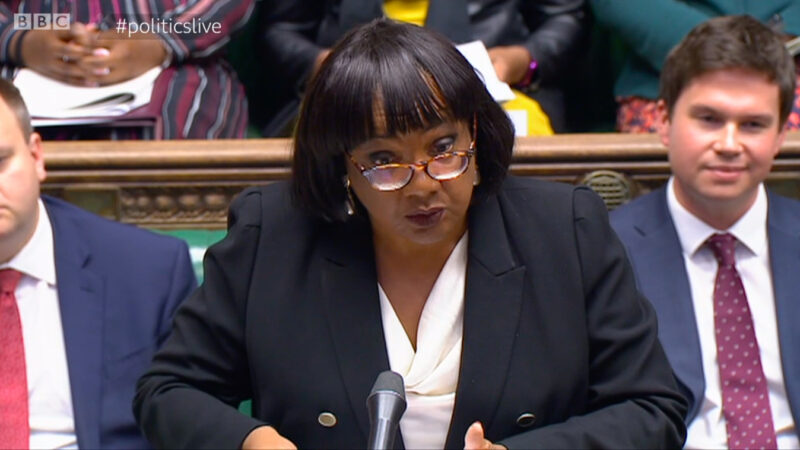
While Prime Minister’s Questions was being held back in Westminster, the political world had its focus on Boris Johnson addressing Tory conference in Manchester. Plumping for a speech that will no doubt be hailed as “barnstorming” over tough questions from the opposition, the Prime Minister missed what would have been only his second PMQs. Instead, he told his supporters repeatedly that he would “get Brexit done by October 31st” but offered no details of the deal the government would be putting forward today.
Although the big, oft-repeated slogan at his conference was “get Brexit done”, which he said himself seven times during the speech, Johnson quickly moved on from that central topic. Not towards policy announcements, of which there were none, but to extolling the virtues of “dynamic free market capitalism” and labelling the Conservatives as “the party of the NHS”. His conclusion summed up the message that he wanted to send – his party would lead a “sensible, moderate, One Nation but tax-cutting Tory government”. That he is now talking about a domestic agenda is no bad thing for Labour as it is far more comfortable territory than Brexit.
Diane Abbott showed Labour’s strength on domestic policy while making history as the first black MP to represent their party at PMQs. As she offered opening remarks, Dominic Raab – standing in for the Prime Minister – interrupted, later we discovered in order to pay tribute to Abbott, ironically. But he had to wait his turn. The Shadow Home Secretary, as many foresaw, was keen to raise concerns about the abuse faced by women across the House, and requested an apology for Johnson’s infamous “humbug” reply to one such female MP. No such apology was forthcoming, of course.
It could have been described as a ‘scattergun’ approach: Abbott changed subject at every question. She covered: the anti-choice billboards targeting pregnant MP Stella Creasy and abortion rights in Northern Ireland; the ‘rape clause’ in Universal Credit; the collapse of Thomas Cook. But the thread running through these questions soon became clear, and was neatly summarised by Abbott when she asked: “Whether it’s women in this House, women claiming benefits, women’s reproductive rights in Northern Ireland and the failure to support women workers at Thomas Cook, isn’t this a government letting women down?”
Raab responded by pointing out, as the Tories always do, that his party had at least put two women in Downing Street. And it is certainly a source of shame that Labour has not elected a single female leader. But Abbott, who was in parliament when both Margaret Thatcher and Theresa May were ousted, replied that they weren’t exactly very kind to the women they allowed to lead their party. “It seems to me that Tory MPs may on occasion make women their leaders but they need to learn how to treat them less cruelly,” she said.
There is another crucial point to be made here, one based on awareness of the difference between ‘descriptive’ and ‘substantive’ representation. The first is what the Tories have achieved by electing women; the latter is what Labour more often achieves by having representatives who stand up for women’s rights and oppose measures that will damage women’s lives. What Diane Abbott did today was achieve both, by breaking down a new barrier for black women and advocating on their behalf too.




More from LabourList
‘Help shape the next stage of Labour’s national renewal through the 2026 NPF consultation’
‘AI regulation is key to Labour’s climate credibility’
Ben Cooper column: ‘Labour needs to rediscover its own authentic populism’